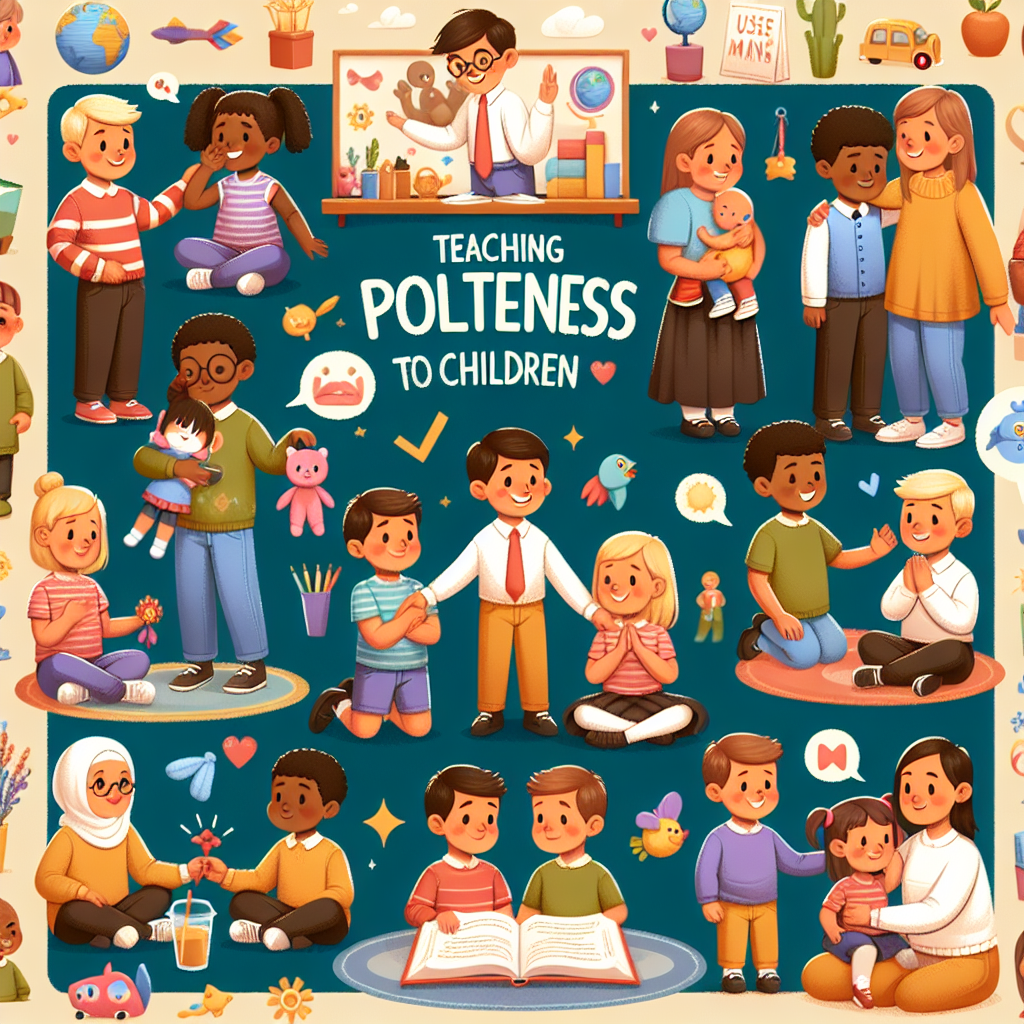Teaching Politeness to Children: Methods and Tips
Educating a child is not only about providing them with healthy nutrition and academic education, but also about inculcating appropriate values and behaviors in society. Politeness is such an essential value, which contributes to the harmonious development of the little one and to its integration in any social environment. Thus, in this article we will explore different methods and tips to help you teach your children how to be polite and respectful.
The Importance of Politeness in Child Development Politeness is more than just a form of etiquette; it reflects respect and empathy for others. Teaching your child to say "Please" and "Thank you" is essential because these magical words open doors and create positive bonds between individuals. Also, children who are taught basic manners feel more confident and are more accepted in peer groups and in the community.
Developing Social Skills through Play Games are an excellent environment for children to learn politeness naturally. Role playing, for example, provides the opportunity to simulate different social situations, where children can practice how to say hello, thank you, apologize or be kind. Through repetition, these behaviors will become second nature to them.
Modeling Behavior by Personal Example Children learn by imitation, so it is essential that parents model politeness. Show respect to all family members and don't forget to use magic words in your everyday life. If children see their parents treating everyone with respect and kindness, they will be much more inclined to do the same.
Integrating Politeness into Daily Routine Politeness education must be a constant. It is important to incorporate rules of politeness into your daily routine. At the table, when shopping, during games - there must always be an emphasis on polite behavior. Thus, the child will learn that good manners are an integral part of any activity.
Praise and Rewards as Motivation Children respond very well to praise and recognition. When your child exhibits polite behavior, it is important to praise him and emphasize the importance of his actions. In addition, a reward system can be an additional motivation. These do not have to be material, but can be in the form of privileges, such as the choice of the next night's game or the Sunday movie.
Confronting Rude Behaviors When your little one does slip up on polite behavior, it's essential to address the situation immediately. Calmly discuss what he did and use the situation as a learning moment. Explain why the behavior was inappropriate and what you could have done differently.
Books and Stories as Educational Tools Reading is another effective way to teach children about politeness. Books and stories that depict characters who practice kindness and respect are valuable resources. Encourage interactive reading and discuss the characters' behaviors, highlighting politeness lessons you can learn together.
Adapting the Teaching of Politeness to the Age of the Child It is important to adapt learning methods to the child's stage of development. What works for a preschooler may not be as effective for an older child. Be patient and adapt your methods so that they are always appropriate for the child's age and level of understanding.
Communication and Open Discussions An open dialogue between parent and child can facilitate understanding of the importance of politeness. Through discussions, you can explore different scenarios and clarify doubts or misunderstandings. Learning thus becomes a two-way process, in which the child also has an active voice.
Use of Educational Technologies and Applications In the digital age, there are many educational apps and games that can support the learning of politeness. These can be valuable tools that combine fun with education, but should be used sparingly and under adult supervision.
Conclusion Teaching politeness is a vital aspect in raising a balanced and socially well-adjusted child. Through play, modeling behavior, integrating manners into daily routines, and open communication, we can cultivate this important quality in our children's lives. We encourage parents to implement these tips and be positive examples for children, thereby contributing to their bright future and to the society in which we live. We also recommend subscribing to our newsletter for more resources on child education or visiting our educational books section of our online store.
Politeness education starts at home and extends into every aspect of your child's life. Combine fun with learning and watch your little ones become respectful and loving citizens, true examples for generations to come.














































































































































